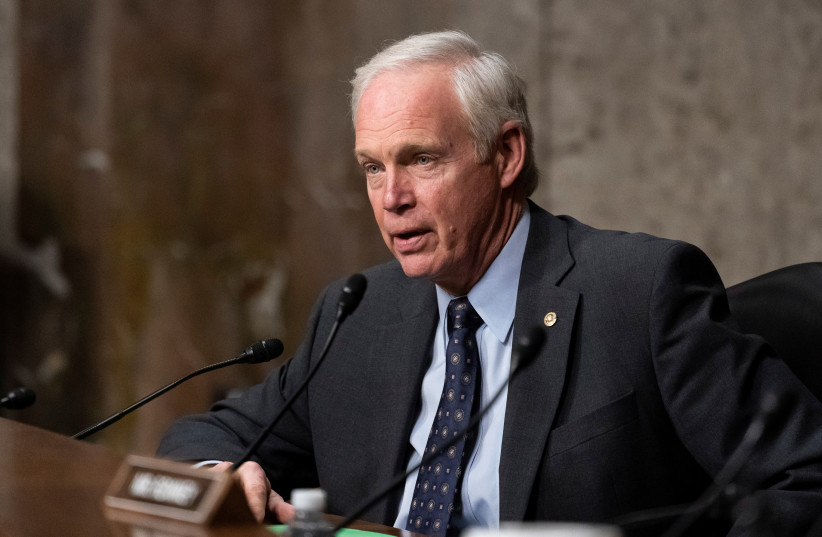WASHINGTON – The Senate Foreign Relations Committee voted on Tuesday to confirm Deborah Lipstadt’s nomination as the next special envoy to monitor and combat antisemitism. Fourteen senators, including Republicans Marco Rubio of Florida Mitt Romney and of Utah, supported the nomination, and eight voted against. The next and final step would be a vote at the Senate floor, some eight months after President Joe Biden announced his intention to nominate her to the position.
“We are grateful to Senate Foreign Relations Committee Chairman [Bob] Menendez, Ranking Member [Jim] Risch and the committee members for confirming Dr. Deborah Lipstadt as a nominee to serve as Special Envoy to Monitor and Combat Antisemitism,” the Jewish Federations of North America said in a statement. “Lipstadt’s nomination comes at a critical time as antisemitic attacks are on the rise in the US and abroad,” the JFNA added. “Only with the proper resources and tools can we fight antisemitism, and this is an important step in these efforts. We urge the Senate to approve this nomination without delay.”
Sen. Jacky Rosen (D-Nevada) said in a statement, “At a time of rising antisemitism around the world, we need dedicated leadership in place to ensure that the United States remains a global leader in pushing back against hatred targeting the Jewish community. Dr. Deborah Lipstadt is a highly qualified nominee who will call out antisemitism no matter where it comes from. I’m glad to see her nomination finally advance out of the Senate Foreign Relations Committee with bipartisan support, and I urge the Senate to swiftly bring her nomination to the floor for a vote.”
Lipstadt, a professor of modern Jewish history and Holocaust studies at Emory University, was the founding director of the Institute for Jewish Studies.
She is an author of eight books, including The Eichmann Trial; Holocaust: An American Understanding; Antisemitism: Here and Now; and Beyond Belief: The American Press and the Coming of the Holocaust, 1933–1945.
British writer and Holocaust-denier David Irving sued her for libel in London in 2000. The famous trial resulted in a victory for Lipstadt, who in 2005 wrote her memoir, History on Trial: My Day in Court with a Holocaust Denier.
Lipstadt was previously a member of the US Department of State’s Advisory Committee on Religious Persecution Abroad and was a board member of Hillel International, The Defiant Requiem and The Covenant Foundation. She received a BA from City College in New York and an MA and PhD from Brandeis University.
Her nomination has been postponed several times. Earlier this month, it was stalled at the request of Sen. Ron Johnson (R-Wisconsin), who objects to the nomination. Johnson announced his objection over a past tweet with a news story about him titled “Senator Johnson slammed as ‘white nationalist sympathizer’ after race remarks.” Lipstadt shared the article a year ago on Twitter and added, “This is white supremacy/nationalism. Pure and simple.”

During her confirmation hearing last month, Johnson asked Lipstadt about it.
“Why did you go on social media and level these vile and horrible charges against people, including me, that you don’t even know?”
Lipstadt replied, “I would not do diplomacy by tweet. While I may disagree with what you said specifically, and I think that’s a legitimate difference, I certainly did not mean it and I’m sorry if it was taken, and I’m sorry if I made it in a way that it could be assumed to be political.”
Johnson told Lipstadt he appreciated and accepted the apology, but he would not vote for her confirmation.
“I think somebody that has had a 30-year professional career ought to know better,” Johnson said. “And when you’re being nominated and considered for confirmation to a position of diplomacy representing the United States, I certainly cannot support your nomination. I hope my other colleagues won’t either.”
Mark Mellman, president and CEO of Democratic Majority for Israel urged the Senate to bring the nomination for a full Senate vote.
“After enduring more than eight months of Republican obstruction, we’re thrilled to finally be able to congratulate Dr. Lipstadt as her nomination moves to a vote in the full Senate,” he said. “Dr. Lipstadt has spent her career fighting antisemitism, from the halls of academia to the public square to the world’s courtrooms, and she is uniquely qualified to take on this challenge.
“We are extremely pleased the US Senate Foreign Relations Committee has approved Prof. Lipstadt for the position of special envoy to combat antisemitism as attacks and threats continue against the global Jewish community. We are grateful for Prof. Lipstadt’s steadfast, vigilant and vocal leadership and look forward to working with her upon her confirmation. She is the right person, at a time of tremendous need, to take on this challenge; we call upon the full U.S. Senate to confirm her without delay,” the Orthodox Union commented.
